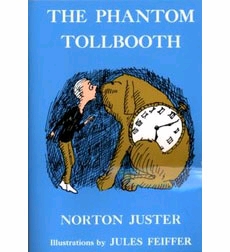For years I basically subscribed to Alfie Kohn’s approach to homework, which he hammers home briefly and succinctly in the video clip: “Making Students work a Second Shift”
It seemed particularly unfair for my deaf and hard of hearing high-school students to have to work “a second shift” doing homework when they live so far away from school. Some of my pupils leave the house well before 7 a.m. and return home after 5 p.m. Not only is dealing with texts in English (as a foreign language!) such a struggle for many of them, many of the kids were notorious for not doing homework before I got them! Therefore, I did not give homework on a regular basis.
But I wasn’t happy with the situation. Some of the students were not taking the learning PROCESS seriously enough and only cared about tests. In fact, I had to admit, that not only weren’t they working “a second shift” – some weren’t working much during their “first shift”!
A few months before this school year began, I read about Robyn Jackson’s approach to homework in “Never Work Harder Than Your Students”. She discussed two elements which I felt were “written for me” :
1) Focus on quality rather than quantity
2) That small amount of homework IS IMPORTANT (otherwise I wouldn’t have given it – no busywork) so it’s not going to go away, it has to be done.
I agonized all summer about how to make sure the students did the homework. WE are not in America – suggestions I found in the book such as utilizing Lunch Period (which we don’t have) or having children stay after school (they are all tied to transportation schedules, NO flexibility there!) were inapplicable.
Since I always “learn by doing” I decided to start without having solved the problem. I created a class website. Every Monday (homework only once a week) I post new homework, but the previous assignments are still visible (I use the format of a table). I told the pupils that homework is presented online and they can email it me or hand it in, as they prefer. I explained that we’re using online homework to enable me to use color and media. In addition it is good for the environment. The assignments are short and focus on point I want them to pay attention to (such as six sentences on the difference between “how long” and no longer”).
Most of the new tenth graders were onboard right away (though two do not do homework to this very day!) Some even told me they felt that this was a serious class! At first, the others hoped that if they ignored it, I would drop the issue. I kept reminding them that important info is waiting for them. When I congratulated them on getting a good grade I reminded them that their teacher evaluation would still be low because by not doing homework they didn’t complete the learning program. After the first round of tests, the pupils who did fairly well to very well asked how they could prevent the teacher’s evaluation looking bad on their report cards and sat down and made up all the assignments! I even heard another teacher say that the pupils told her that they consider English to be one of the serious subjects because there is regular homework! I didn’t expect that!
The current situation is that about 80 percent of the 65 pupils do homework. I know that a weekly point I want to emphasize is getting across and feel very good about it. Unfortunately, not all of the pupils do the homework on time. I’m not sure how to get around that because by now the pupils know that my focus is on the learning aspect and don’t feel pressured to hand in the work on time. For the second semester, which is about to start, I plan to make a rule that homework can only be made up in the month it was given.
One thing is for sure – my husband feels that since I read the book “Never Work Harder Than Your Students” I’m working harder than before!
 I loved this when I was growing up, I enjoyed this book so much with my own boys and read it a few times on my own. A combination of “delicious” use of language and ideas that are so true, relate to life so well!
I loved this when I was growing up, I enjoyed this book so much with my own boys and read it a few times on my own. A combination of “delicious” use of language and ideas that are so true, relate to life so well!
